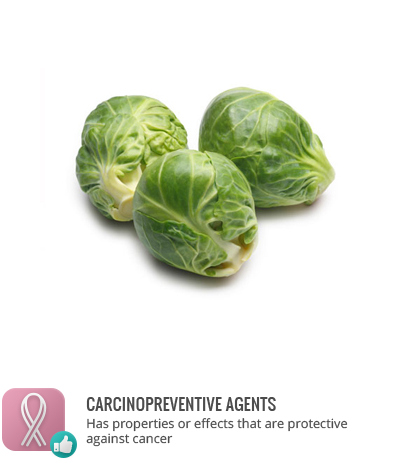Brussels sprouts
Definition
Brussels sprouts are a brassica vegetable that are part of the cabbage species. Though grown on large stalks in a helical pattern, sprouts are typically sold off-the-stalk.
Health considerations
Brussels sprouts are on average 9% carbohydrate, 4% fiber, less than 1% fat, and over 3% protein. They are a source of vitamin C, vitamin K, manganese, iron, and other vitamins and minerals. Brussels sprouts contain high levels of glucosinolates such as sulphoraphane (see: glucosinolates, isothiocyanates). Multiple studies have found Brussels sprouts consumption to have anti-cancer effects, in animals and humans. Brussels sprouts can have an effect on metabolism of warfarin anticoagulant drugs, such as Coumadin.
Keep in mind
Steaming and boiling produces a pungent, sulfurous odor. Roasting and sauteing can minimize this odor. However, stir-frying and boiling lead to the greatest losses of sprouts’ nutrients, including glucosinolate content. Steaming, particularly for a brief period of time, minimizes loss. Furthermore, the longer the time since harvest, the greater the loss of glucosinolates.
May be found in
Sold as is, fresh or frozen. Shredded in salad blends. Soups, stews, prepared dishes.
References
Warwick
European Journal of Clinical Pharmacology
Wiley
Cancer Letters
Cancer Letters 2
Carcinogenesis
Carcinogenesis 2


